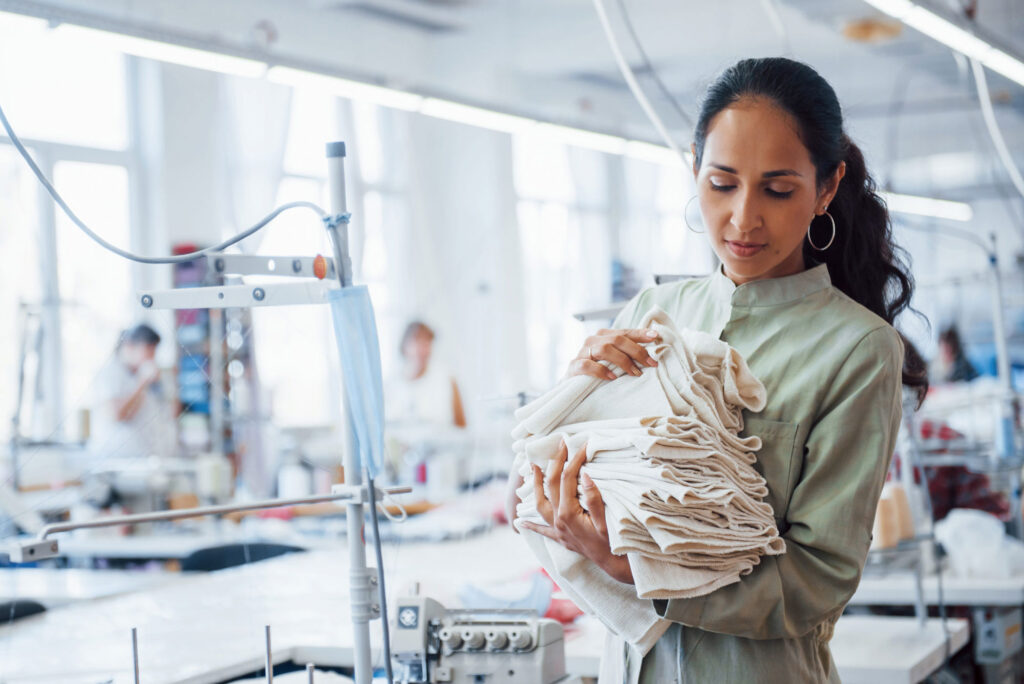The textile and apparel industry has a unique role to play in empowering women and increasing equity for millions of women garment workers, especially in the Global South, who depend on it for survival. The theme of this year’s International Women’s Day is ‘embrace equity’ – we must make equity central to our collective journey to becoming more responsible and ensuring a just transition to a fairer and greener system for all.
As with many female leaders across the world, striving for greater equity is a personal passion of mine, and something I reflect on and work towards all year round. Empowering women has huge benefits to industries, and the planet, worldwide.
As we collectively accelerate our work on addressing the climate crisis, those who are the most vulnerable within our sector – the millions of women who work in textile and garment production facilities – must be at the heart of our strategies. Sustainability is about addressing environmental and social equity hand in hand.
The apparel industry is one of the few in which women workers predominate with women making up 80% of the world’s garment workers. Our sector consequently has an enormous opportunity when it comes to increasing equity. Already, it offers a foothold for many women out of poverty.
When speaking to our members and the women working in facilities, I have heard inspiring stories of how working in the industry has not only changed lives, but the lives of the next generation. Women have spoken of increasing independence, security and professional growth. Some are the first in their families to send their children to school, which is especially important for girls and it has enabled them to achieve a more prosperous future. The positive impacts are multi-faceted and multi-generational. By taking a lead on this issue, our industry can take a lead on the greater societal change necessary for a prosperous, inclusive and more equitable future for all.
However, women garment and textile workers are also disproportionately affected by exploitation. Some face gender-based violence and even slavery. We need to do more together, to co-create solutions across the entire value chain to address these issues and realize opportunities for all women. We need to see fair pay, decent conditions, job security, and opportunities for development.
One example of this type of collaboration is RISE, formerly known as Empower@Work, a collaborative initiative from BSR’s HERproject, CARE, Better Work, and GAP Inc.’s P.A.C.E program that seeks to deliver a unified approach to women’s empowerment and gender equality in global supply chains. By helping to support, empower and increase equity for women, the entire industry benefits.
No easy answers exist, but our industry is known for its creativity, ingenuity, and our ability to collaborate on shared solutions. We have the talent, imagination, and skills to envision and realize expansive solutions to the complex series of interlinked problems we face. The key is staying focused on putting people first, particularly women, to ensure greater equality, empowerment, and equity across the value chain.
As a women-dominated industry, apparel has a unique opportunity to do something exceptional and lead on issues of gender equity; this needs to happen from the top down. Although Fortune 500 recently recorded its highest number of companies led by women (10%), fashion industry leaders are still male dominated. Approximately 75% of men take up CEO roles, compared to the 80% of garment workers being made up by women. This disparity between the number of men in leadership positions and women making up the majority in the manual labor work force highlights how important it is to “embrace equity” in the apparel industry and ensure women are empowered throughout the whole supply chain right into leadership roles. If we are serious about gender equity in this industry, our organizations need to reflect this commitment at all organizations across the value chain, from the boardroom to the factory floor.
We need to embrace equity and create the best possible version of our industry – one that empowers women at all levels and creates a more equitable future for all.






